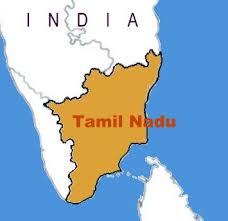Tamil Nadu government decided to open new outlets in the interior roads leading to the national and the state highways has triggered strong protests from local residents across the state.
When the Supreme Court ordered closure of liquor shops along the national and the state highways, Tamil Nadu suffered the highest revenue loss in the country with the closure of 3,320 out of the total 5,700 liquor outlets run by state-owned sole retailer Tamil Nadu State Marketing Corporation (TASMAC).
With the state getting one-fourth of its revenue from the TASMAC, which is crucial to funding its freebies and other social welfare schemes, Tamil Nadu government decided to open new outlets in the interior roads leading to the national and the state highways has triggered strong protests from local residents across the state. For the last one week alone, the protest varying from road roko to demonstrations were reported across the state.
On Tuesday, residents of Samalpuram in Tirupur district protested against opening of a liquor outlet in their locality and staged a protest but police launched a brutal lathi charge on protestors including women.The protest were reported on Wednesday in several districts including Erode, Tirupur, Karur and Tirunelveli against opening of liquor outlets in residential areas.
In the run-up to the state assembly election in 2016, the state witnessed series of campaign in favour of prohibition forcing all the political parties promise its implementation in their manifesto. The ruling AIADMK, which was dismissive of implementing prohibition citing free availability of liquor in the neighbouring states and fearing hooch tragedies, acceded to the growing demand by announcing phased implementation of prohibition if it was voted back to power. After winning the election, the chief minister J. Jayalalithaa, on her first day in office on May 24, 2016, announced closure of 500 shops and reduced the working hour of the retail outlets to 10 hours from 12 hours.


